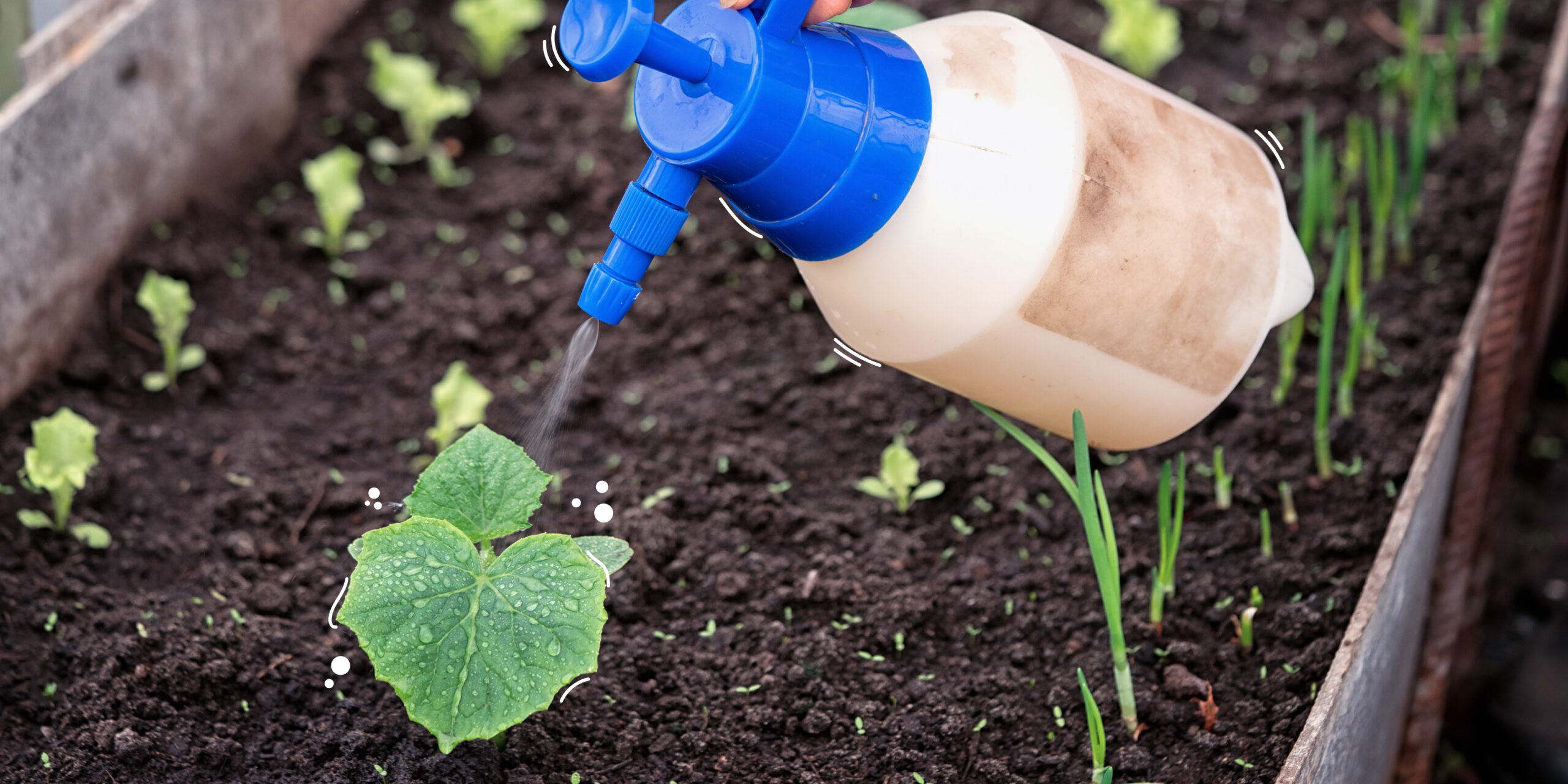

Articles
What Is Synthetic Fertilizer
Modified: May 6, 2024
Learn about synthetic fertilizer and its impact on the environment in this informative article. Understand the pros and cons of using synthetic fertilizers and explore alternative options.
(Many of the links in this article redirect to a specific reviewed product. Your purchase of these products through affiliate links helps to generate commission for Storables.com, at no extra cost. Learn more)
Introduction
When it comes to growing healthy and abundant crops, one of the most important factors to consider is the use of fertilizers. Fertilizers provide essential nutrients to plants, aiding in their growth and development. There are different types of fertilizers available in the market, including synthetic fertilizers.
Synthetic fertilizers have become increasingly popular among farmers and gardeners due to their convenience and rapid results. However, they have also garnered criticism for their potential negative impacts on the environment. In this article, we will explore what synthetic fertilizer is, its components, how it works, and the pros and cons associated with its use.
Key Takeaways:
- Synthetic fertilizers offer convenience and rapid results, but their overuse can lead to environmental pollution, soil degradation, and health concerns. Balancing their use with sustainable practices is crucial for long-term agricultural sustainability.
- Exploring alternatives such as organic fertilizers, cover cropping, and composting can reduce dependency on synthetic fertilizers, promoting healthier soils and environmental stewardship. Responsible usage and sustainable farming practices are essential for a resilient and sustainable agricultural future.
Read more: What Is Synthetic Stucco Made Of
Definition of Synthetic Fertilizer
Synthetic fertilizer, also known as chemical fertilizer, is a manufactured product that contains specific concentrations of essential nutrients for plants. It is formulated by combining different chemical compounds, such as nitrogen, phosphorus, and potassium, which are known as NPK fertilizers.
Unlike organic fertilizers, which are derived from natural sources like compost, animal manure, or plant residues, synthetic fertilizers are made through a chemical process. These fertilizers are often available in granular or liquid form and are widely used in commercial agriculture, horticulture, and home gardening.
The composition of synthetic fertilizers can vary depending on the desired nutrient ratios and the specific needs of the crops being grown. Manufacturers carefully formulate these fertilizers to ensure that plants receive the appropriate balance of nutrients required for optimal growth.
It is important to note that synthetic fertilizers are readily available in the market and offer a convenient solution for boosting crop production. However, their use should be approached with caution to avoid potential negative impacts on the environment and human health, as we will explore in the later sections of this article.
Components of Synthetic Fertilizer
Synthetic fertilizers are composed of different chemical compounds that provide essential nutrients for plants. The three main components found in synthetic fertilizers are nitrogen (N), phosphorus (P), and potassium (K), commonly referred to as NPK.
Nitrogen (N): Nitrogen is a vital nutrient for plant growth and plays a crucial role in leaf and stem development. It is responsible for promoting vibrant green foliage and enhancing overall plant health. Synthetic fertilizers contain various forms of nitrogen, such as ammonium nitrate, ammonium sulfate, or urea.
Phosphorus (P): Phosphorus is essential for root development, flowering, and fruiting in plants. It helps in the transfer of energy within the plant and aids in the production of DNA and cell membranes. Synthetic fertilizers contain phosphorus in the form of phosphates, such as monoammonium phosphate (MAP) or diammonium phosphate (DAP).
Potassium (K): Potassium is crucial for overall plant health and functions such as photosynthesis, water regulation, and disease resistance. It promotes root growth, strengthens stems, and improves the quality of fruits and vegetables. Synthetic fertilizers provide potassium in the form of potassium chloride or potassium sulfate.
In addition to the primary NPK components, synthetic fertilizers may also contain secondary nutrients like calcium, magnesium, and sulfur, as well as trace elements such as iron, manganese, zinc, copper, and boron.
It is important to note that the specific components and their proportions in synthetic fertilizers can vary depending on the intended application and the specific needs of the plants being grown. Manufacturers carefully formulate their products to provide the right balance of nutrients for optimal plant growth and performance.
While synthetic fertilizers offer convenient and readily available nutrient sources, it is essential to use them judiciously and in accordance with recommended application rates to avoid nutrient imbalances or potential harm to the environment.
How Synthetic Fertilizer Works
Synthetic fertilizers are designed to provide plants with essential nutrients in a readily available form. When applied to the soil or sprayed onto plant leaves, these fertilizers dissolve or break down, releasing the nutrients that plants need for growth and development.
One of the key factors in the effectiveness of synthetic fertilizers is their solubility. The nutrients in these fertilizers are typically water-soluble, allowing them to be easily absorbed by plant roots. This enables plants to take up the nutrients quickly, leading to rapid growth and improved crop productivity.
Once applied, synthetic fertilizers undergo a process called nutrient uptake. Plant roots absorb the dissolved nutrients through a process known as active transport. This process involves the movement of ions against a concentration gradient, requiring energy expenditure by the plant.
The absorbed nutrients are then transported within the plant to various parts, including leaves, stems, and roots. They are utilized for different plant functions, such as photosynthesis, protein synthesis, and growth. The availability of essential nutrients through synthetic fertilizers ensures that plants have an adequate supply to support their metabolic processes and reach their full growth potential.
It is worth mentioning that the fast-acting nature of synthetic fertilizers makes them a popular choice for crops with immediate nutrient requirements or for quick fixes to nutrient deficiencies. However, it is important to carefully follow recommended application rates to prevent over-fertilization, which can lead to nutrient imbalances, environmental pollution, and potential harm to plants.
While synthetic fertilizers offer convenience and efficiency, it is essential to maintain a balanced approach to their use. Combining their application with other sustainable practices, such as soil testing, crop rotation, and organic matter incorporation, can help optimize plant nutrition and reduce the dependency on synthetic fertilizers.
Pros of Synthetic Fertilizer
Synthetic fertilizers have gained popularity in modern agriculture due to several advantages they offer. Here are some of the key benefits of using synthetic fertilizers:
- Efficiency: Synthetic fertilizers are formulated to provide plants with specific nutrients in easily absorbable forms. This leads to efficient nutrient uptake by plants, resulting in faster growth and increased crop yields.
- Precision Nutrition: With synthetic fertilizers, farmers have the ability to control the nutrient composition and ratios applied to their crops. This allows for precise nutrient management, targeting specific deficiencies and optimizing plant growth.
- Convenience: Synthetic fertilizers are readily available in the market and can be easily applied to crops. They are available in various forms, including granules, liquids, and soluble powders, providing flexibility to farmers and gardeners in choosing the most suitable application method.
- Cost-Effective: Synthetic fertilizers are generally more cost-effective than organic alternatives, making them an attractive option for large-scale agriculture. They are typically manufactured on a large scale, resulting in lower production costs compared to organic fertilizers.
- Rapid Results: One of the primary advantages of synthetic fertilizers is their ability to provide quick and visible results. Plants respond rapidly to the readily available nutrients, showing improved growth and increased productivity in a relatively short period of time.
- Long Shelf Life: Synthetic fertilizers have a longer shelf life compared to organic fertilizers. They can be stored for extended periods without the risk of nutrient degradation, allowing farmers to plan their fertilization schedules more efficiently.
It is important to note, however, that while synthetic fertilizers offer these benefits, careful usage and monitoring are essential to avoid over-application and potential negative impacts on the environment and soil health. Balancing their use with organic amendments and sustainable farming practices can help maximize the advantages of synthetic fertilizers while minimizing their drawbacks.
When using synthetic fertilizers, it’s important to carefully follow the instructions on the packaging to avoid over-fertilizing and causing harm to your plants or the environment.
Read more: What Is Synthetic Grass Made Of?
Cons of Synthetic Fertilizer
While synthetic fertilizers offer several advantages, it is important to consider the potential drawbacks and negative impacts associated with their use. Here are some of the key cons of synthetic fertilizer:
- Environmental Pollution: One of the primary concerns with synthetic fertilizers is their potential to contribute to environmental pollution. Excessive use or improper application of fertilizers can result in nutrient runoff into water bodies, leading to water pollution and harmful algal blooms.
- Soil Degradation: Continuous reliance on synthetic fertilizers can lead to soil degradation over time. These fertilizers are often highly soluble, which can cause nutrient leaching and loss of soil fertility. The use of synthetic fertilizers without proper soil testing and nutrient management can lead to imbalances, negatively impacting soil health and long-term productivity.
- Dependency on Non-Renewable Resources: The production of synthetic fertilizers relies heavily on non-renewable resources, such as fossil fuels. The energy-intensive manufacturing process and transportation contribute to carbon emissions and exacerbate environmental issues, including climate change.
- Reduced Microbial Activity: Synthetic fertilizers primarily provide plants with essential macronutrients, but they often lack the beneficial microorganisms and organic matter present in organic fertilizers. This can reduce soil microbial activity and disrupt the natural nutrient cycling processes in the soil.
- Health Concerns: Synthetic fertilizers, when not used properly, can pose health risks to humans and animals. Direct contact, inhalation of dust particles, or consumption of contaminated produce can lead to adverse health effects. It is important to follow safety guidelines and adhere to recommended application rates to minimize these risks.
- Loss of Biodiversity: Excessive nitrogen application from synthetic fertilizers can contribute to the loss of biodiversity by promoting the growth of certain plant species at the expense of others. This can disrupt natural ecosystems and lead to imbalances in plant and animal populations.
It is crucial to note that these drawbacks can be mitigated through responsible and judicious use of synthetic fertilizers. Integrated nutrient management practices, such as soil testing, precision farming, and the incorporation of organic amendments, can help minimize the negative impacts and promote sustainable agriculture.
Environmental Impact of Synthetic Fertilizer
While synthetic fertilizers have played a significant role in increasing agricultural productivity, their use has also raised concerns about their environmental impact. Here are some of the key environmental implications associated with synthetic fertilizers:
- Water Pollution: Excessive use or improper application of synthetic fertilizers can result in nutrient runoff into water bodies. This runoff carries nitrogen and phosphorus, which can contribute to the eutrophication of waterways. Excessive nutrient levels in water bodies can lead to algal blooms, oxygen depletion, and the disruption of aquatic ecosystems.
- Soil Degradation: Continuous reliance on synthetic fertilizers without proper soil testing and nutrient management can lead to soil degradation. The high solubility of synthetic fertilizers can result in nutrient leaching, where nutrients move below the root zone, out of reach for plants. This can result in nutrient imbalances and reduced soil fertility over time.
- Greenhouse Gas Emissions: The production and transportation of synthetic fertilizers require significant energy inputs, often derived from fossil fuels. This contributes to greenhouse gas emissions, leading to climate change and its associated impacts, such as increased temperatures and altered precipitation patterns.
- Disruption of Nitrogen Balance: Synthetic fertilizers, particularly those high in nitrogen, can disrupt the natural nitrogen balance in ecosystems. Excess nitrogen can lead to the accumulation of nitrates in groundwater, posing risks to human health and contaminating drinking water sources.
- Loss of Biodiversity: Synthetic fertilizers promote the growth of certain plant species at the expense of others, leading to imbalances in plant communities. This can negatively impact biodiversity by reducing the availability of habitat and resources for native plants and wildlife.
- Impact on Beneficial Microorganisms: Synthetic fertilizers do not provide the organic matter and beneficial microorganisms present in organic fertilizers. This can disrupt soil microbial communities, reducing the natural nutrient cycling processes and overall soil health.
To mitigate the environmental impact of synthetic fertilizers, it is important to adopt sustainable practices. This includes optimizing nutrient management through soil testing, using fertilizers judiciously and in accordance with recommended application rates, and incorporating organic amendments to enhance soil fertility and microbial activity. Additionally, implementing practices such as cover cropping, crop rotation, and conservation tillage can help reduce nutrient runoff and improve overall environmental sustainability.
Alternatives to Synthetic Fertilizer
While synthetic fertilizers have been widely used in modern agriculture, there is a growing interest in exploring alternative methods of nutrient management that are more sustainable and environmentally friendly. Here are some alternatives to synthetic fertilizers:
- Organic Fertilizers: Organic fertilizers are derived from natural sources, such as compost, animal manure, bone meal, and plant residues. These fertilizers provide a slow-release of nutrients and improve soil structure and microbial activity. They are beneficial in promoting long-term soil health and reducing the risk of nutrient leaching.
- Cover Crops: Cover crops, also known as green manure, are crops that are grown primarily for their ability to improve soil health. They help prevent erosion, add organic matter to the soil, fix nitrogen, and improve nutrient availability. Cover cropping can significantly reduce the dependency on synthetic fertilizers by naturally enriching the soil.
- Crop Rotation: Crop rotation involves the practice of growing different crops in sequential seasons. This helps break the pest and disease cycles, improves soil fertility, and reduces the need for synthetic fertilizers. Different crops have different nutrient requirements, and rotation ensures proper nutrient management and reduces the risk of nutrient depletion.
- Compost: Composting is the process of decomposing organic materials, such as kitchen scraps, yard waste, and crop residues, into a nutrient-rich soil amendment. Compost provides a balanced mix of nutrients, improves soil structure, boosts microbial activity, and enhances overall soil fertility. It is an excellent alternative to synthetic fertilizers, especially for organic farming practices.
- Biological Fertilizers: Biological fertilizers, also known as biofertilizers, contain beneficial microorganisms that enhance nutrient availability and plant growth. These microorganisms promote nitrogen fixation, phosphorus solubilization, and nutrient mobilization. Biofertilizers can be used in conjunction with organic fertilizers to improve nutrient uptake and reduce reliance on synthetic fertilizers.
- Agroecological Practices: Agroecological practices focus on the integration of ecological principles into agriculture. This includes practices such as agroforestry, permaculture, and integrated pest management. These approaches promote biodiversity, natural nutrient cycling, and soil conservation, leading to reduced reliance on synthetic fertilizers.
By adopting these alternative approaches and combining them with sustainable farming practices, farmers and gardeners can reduce their dependency on synthetic fertilizers while promoting healthier soils, protecting the environment, and ensuring long-term agricultural sustainability.
Conclusion
Synthetic fertilizers have revolutionized modern agriculture, providing a convenient and efficient way to supply essential nutrients to plants. They offer numerous benefits, including increased crop yields, precision nutrition, and rapid results. However, it is essential to consider the potential drawbacks and environmental impact associated with their use.
The environmental implications of synthetic fertilizers, such as water pollution, soil degradation, and greenhouse gas emissions, highlight the need for sustainable alternatives. Organic fertilizers, cover cropping, crop rotation, composting, and biological fertilizers offer effective alternatives to synthetic fertilizers, promoting soil health, reducing environmental harm, and ensuring long-term sustainability.
It is crucial for farmers and gardeners to adopt responsible practices and utilize synthetic fertilizers in moderation, considering soil testing, recommended application rates, and nutrient management. Balancing the use of synthetic fertilizers with organic amendments and implementing sustainable farming techniques can help minimize the negative impacts while maximizing crop productivity and environmental stewardship.
By exploring and implementing alternative methods of nutrient management, we can move towards a more sustainable agricultural system that nourishes plants, preserves soil health, protects water resources, supports biodiversity, and mitigates climate change.
Ultimately, the choice between synthetic fertilizers and their alternatives should be guided by the principles of environmental stewardship, soil health, and long-term sustainability. By being mindful of the impact of our agricultural practices, we can work towards a more resilient and sustainable future for our food systems and the environment as a whole.
Now that you're clued in on synthetic fertilizers, why not learn about applying them correctly? Our next piece demystifies fertilizer application, ensuring your plants thrive without guesswork. From timing and techniques to dosages and tools, we cover all bases, helping gardeners of all stripes get the most from their efforts. So, if you're looking to boost your gardening game, don't miss out on this essential read!
Frequently Asked Questions about What Is Synthetic Fertilizer
Was this page helpful?
At Storables.com, we guarantee accurate and reliable information. Our content, validated by Expert Board Contributors, is crafted following stringent Editorial Policies. We're committed to providing you with well-researched, expert-backed insights for all your informational needs.
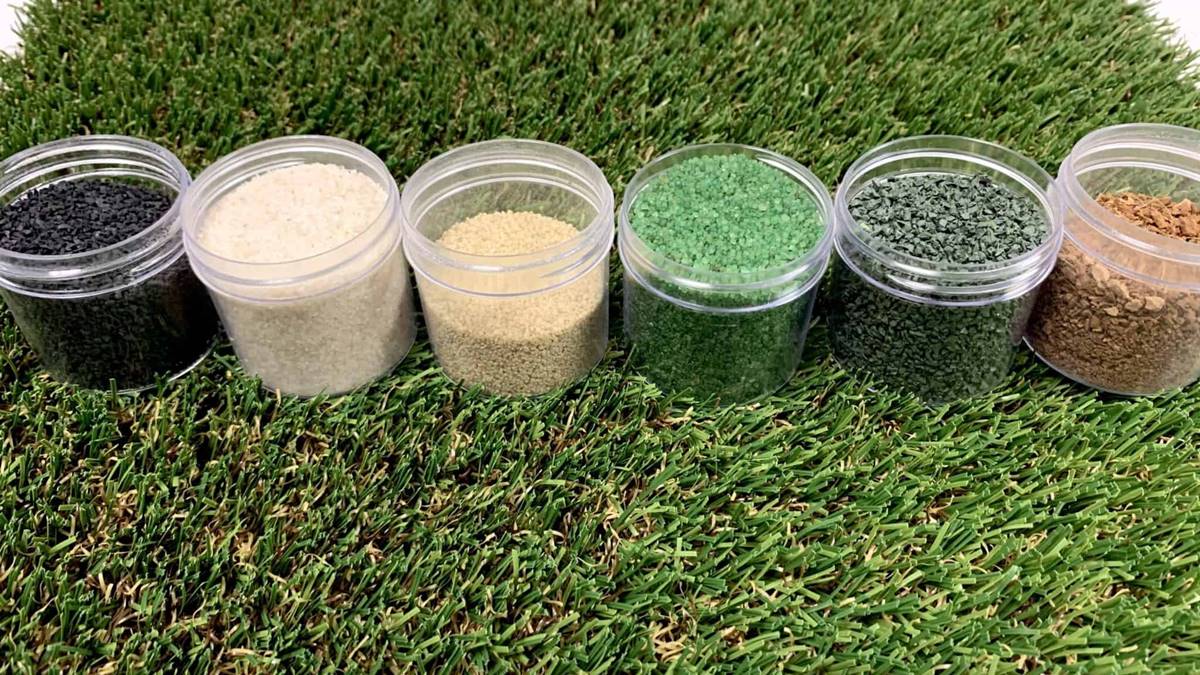





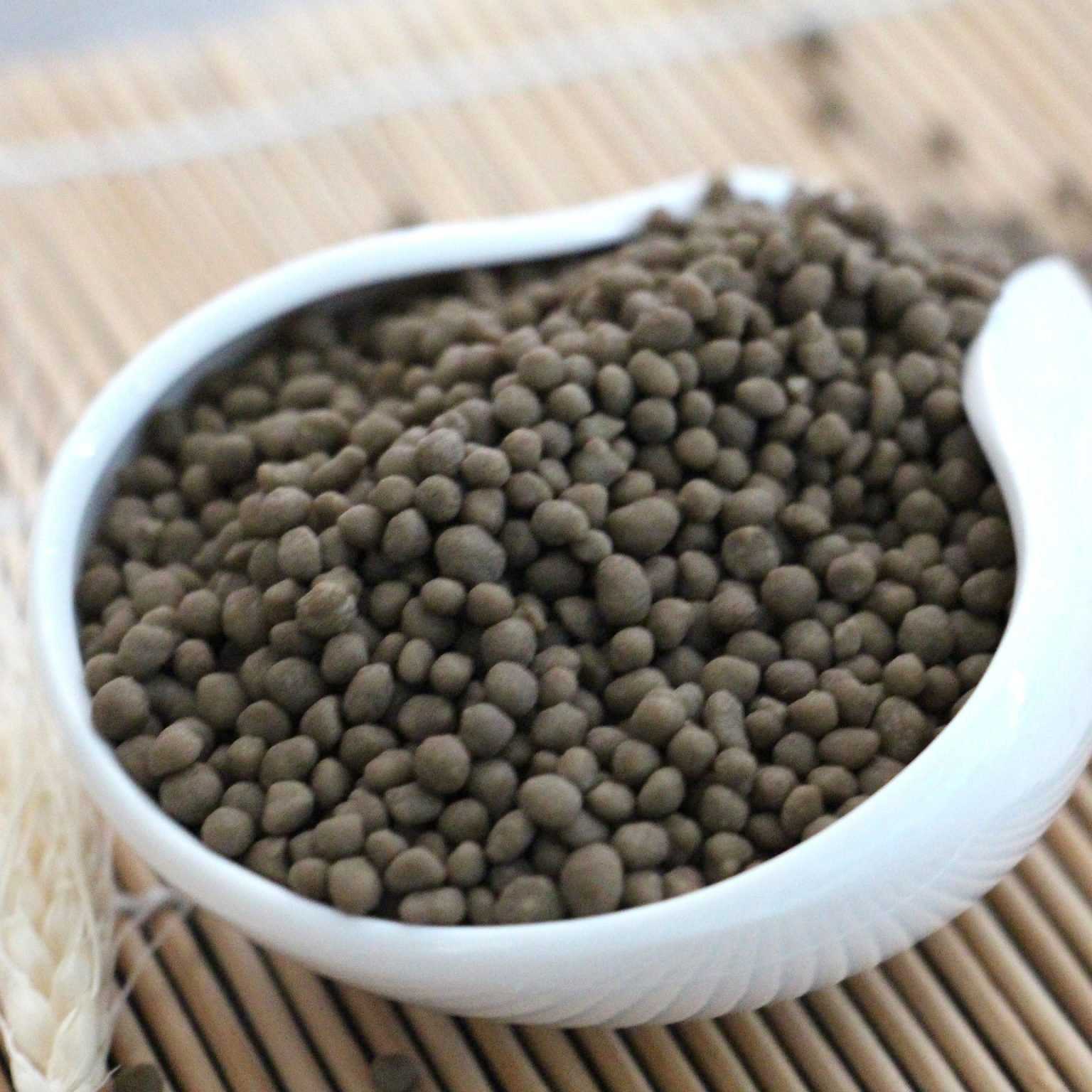

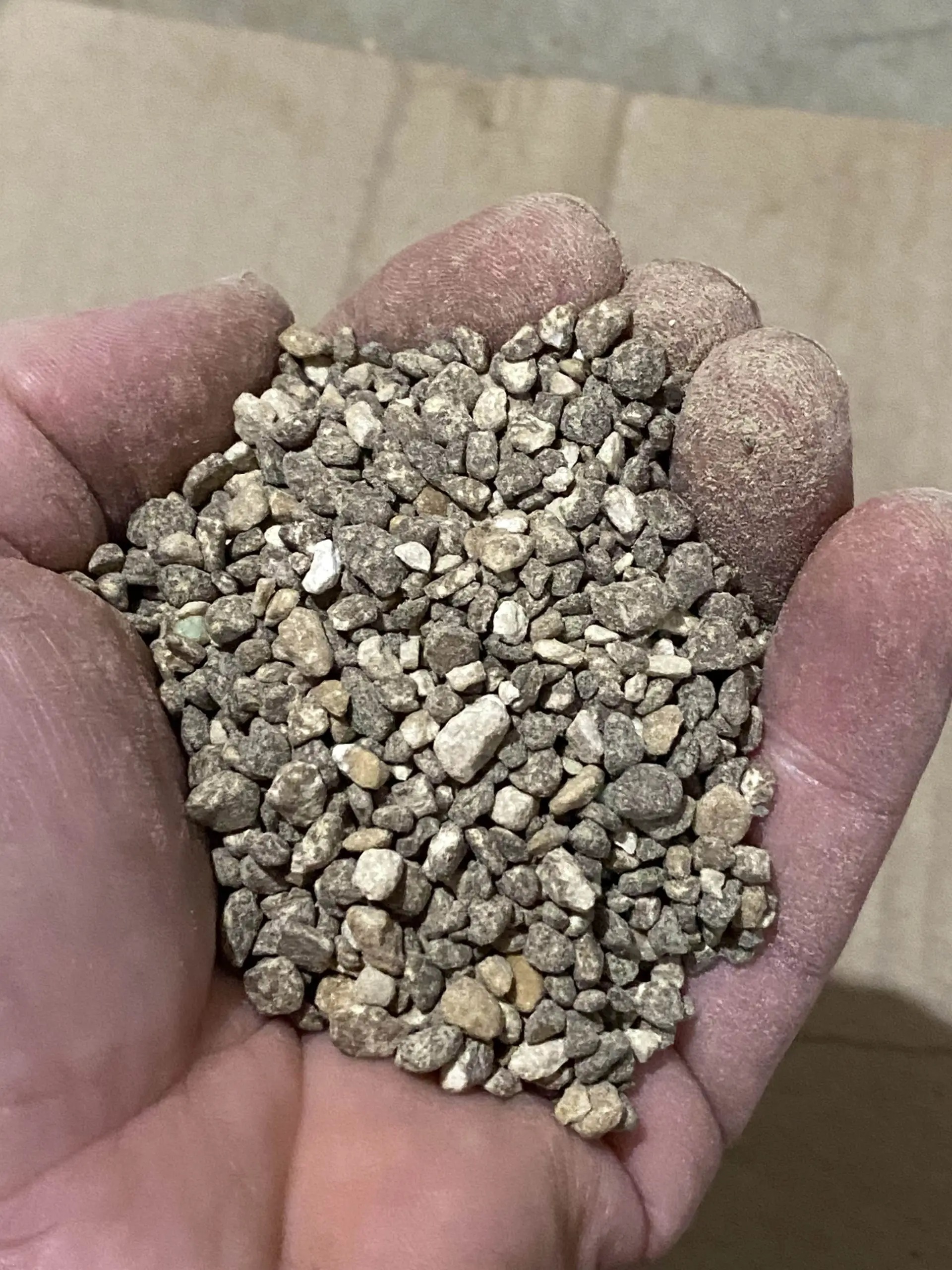
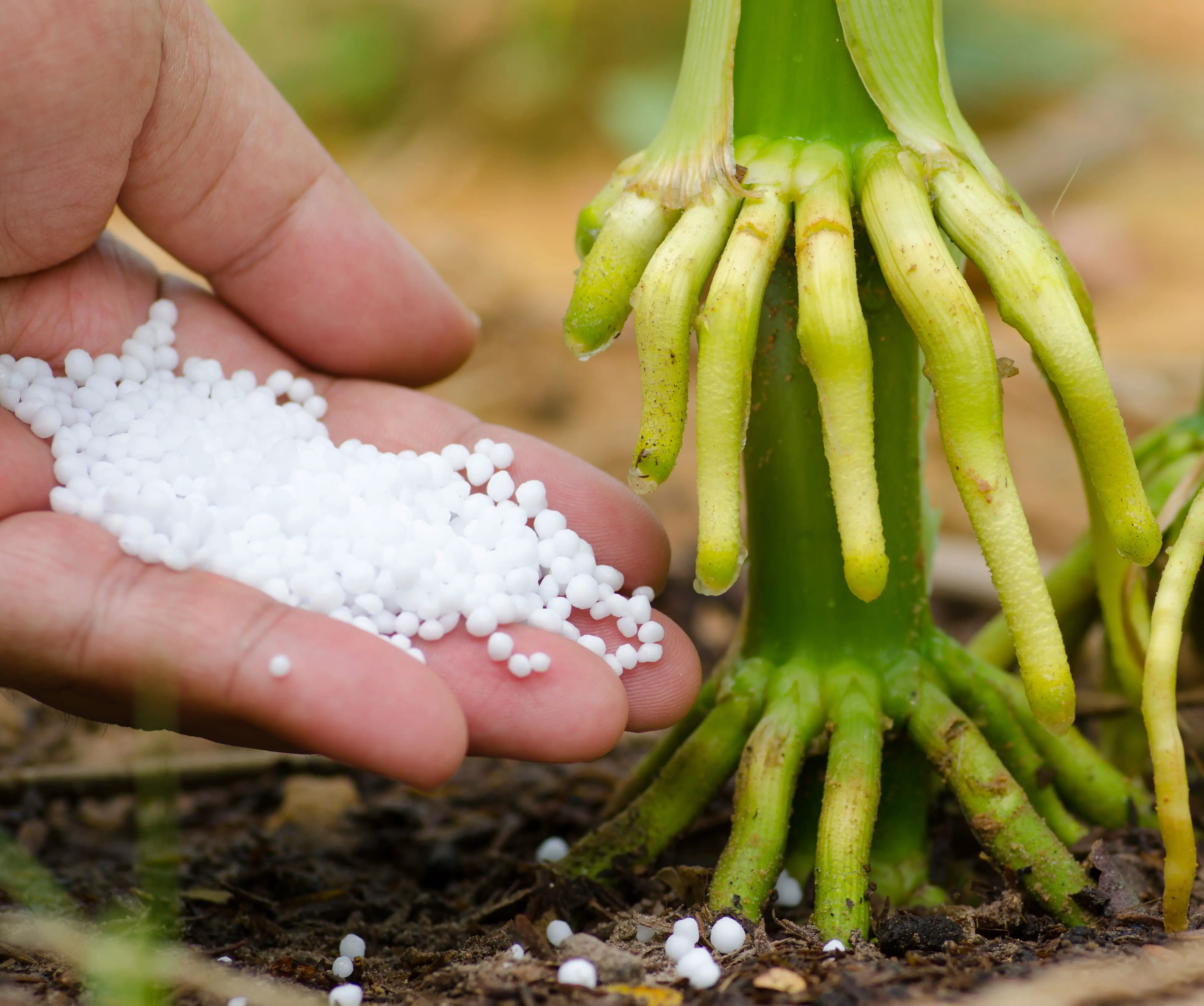


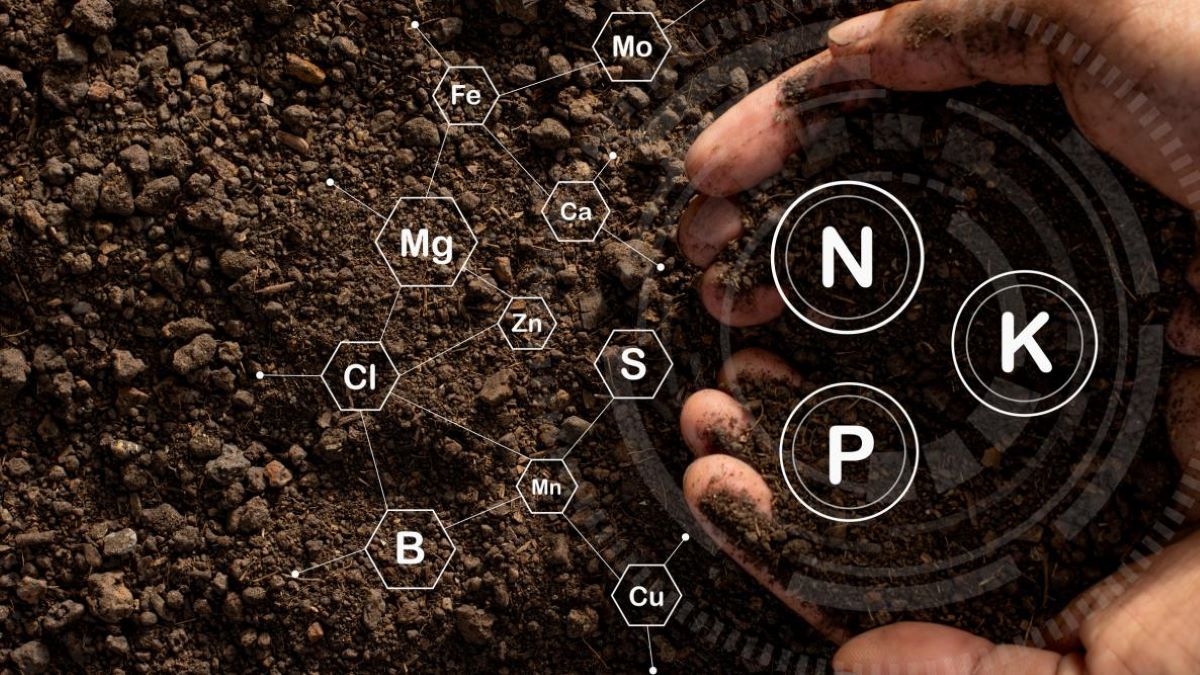
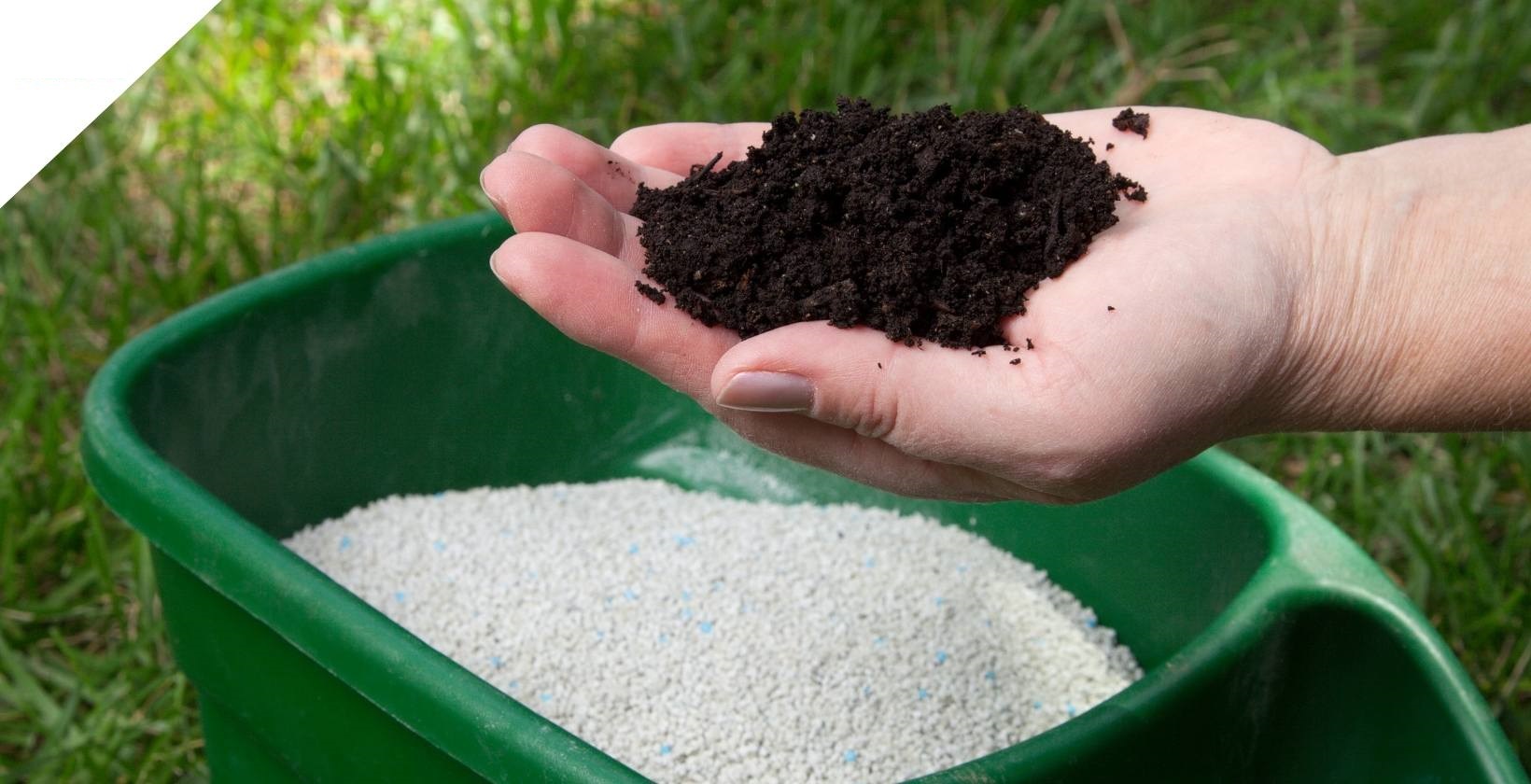

0 thoughts on “What Is Synthetic Fertilizer”